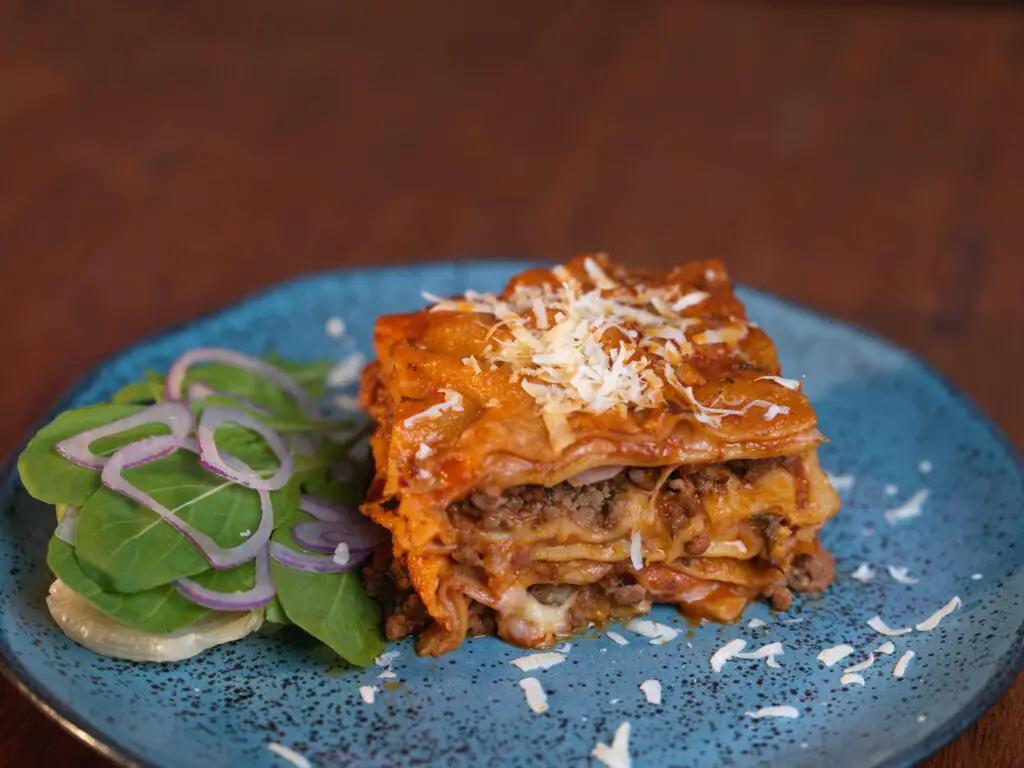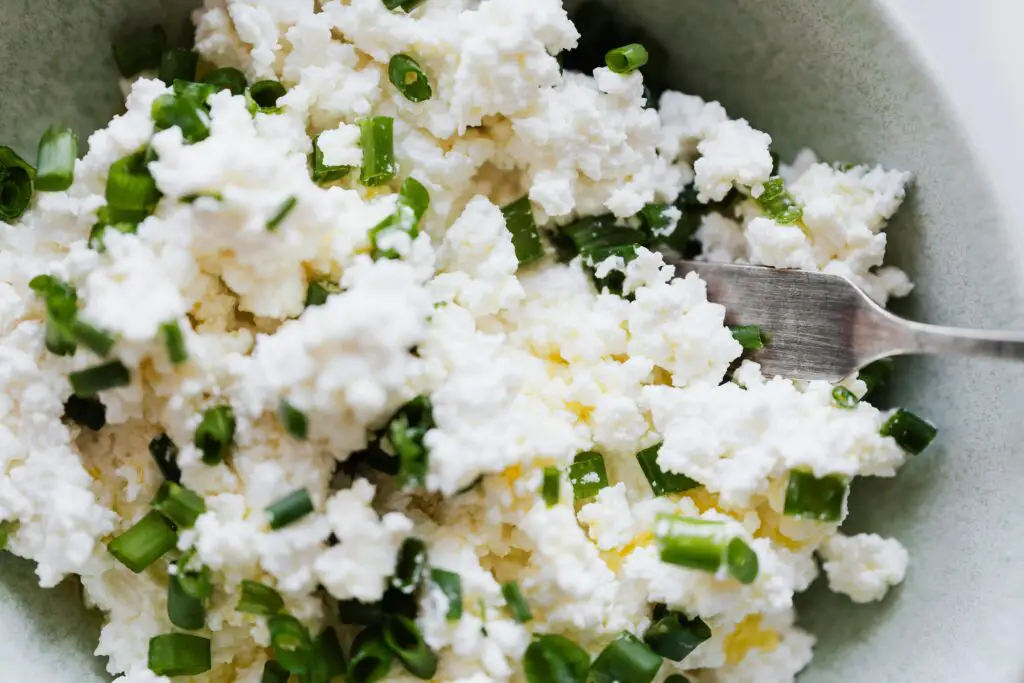1. Processed Cheese Slices

Those individually wrapped slices may be convenient, but they’re far from real cheese. Loaded with artificial additives, emulsifiers, and preservatives, processed cheese is designed to last longer and melt perfectly rather than provide nutritional benefits. Many brands contain high amounts of sodium and unhealthy fats, which can contribute to high blood pressure and heart issues. Some also have phosphates, which in excess, may weaken bones over time says Eating Well.
If you’re sensitive to lactose, these slices might be even worse for digestion due to added milk derivatives. Studies suggest that artificial food colorings, often used in processed cheese, may have links to hyperactivity in children. Instead of grabbing these bright yellow slices, consider opting for natural cheddar or Swiss, which offer more nutrients without the unnecessary additives. Your grilled cheese sandwich will taste better with the real deal anyway shares Harvard Gazette.
2. Blue Cheese

While blue cheese lovers enjoy its tangy and pungent flavor, not everyone can tolerate it. The mold that gives blue cheese its distinct appearance and taste comes from Penicillium cultures, which may trigger allergic reactions in some people. Those with mold sensitivities or compromised immune systems could experience digestive discomfort or even more serious inflammatory responses. Additionally, blue cheese is often high in saturated fats, which, when consumed in excess, can contribute to heart disease says USA Today.
Another concern is histamine, a compound that can cause headaches or migraines in sensitive individuals. Some people also struggle with its strong aroma, which comes from the breakdown of proteins into ammonia-like compounds. If you’re prone to these reactions, it might be best to swap blue cheese for a milder, less fermented option. Aged cheddar or feta can still offer bold flavors without the potential side effects explains Delish.
3. Queso Fresco

Queso fresco, a fresh and crumbly cheese popular in Latin American cuisine, has been linked to foodborne illnesses. Since it’s traditionally made from unpasteurized milk, it can harbor bacteria like Listeria monocytogenes, which poses a serious risk to pregnant women, the elderly, and those with weakened immune systems. Even when pasteurized, queso fresco’s high moisture content makes it more susceptible to bacterial growth than aged cheeses.
Aside from safety concerns, queso fresco is also high in sodium, which can contribute to bloating and high blood pressure. Many store-bought versions contain added preservatives to extend shelf life, which can negatively impact gut health. If you love its mild flavor, try a safer alternative like pasteurized ricotta or cottage cheese. These options still give you that soft texture without the same health risks.
4. American Cheese

American cheese may look like cheese, but it’s actually a processed product made with a mix of milk, whey, and artificial ingredients. Its creamy texture and perfect meltability come from added emulsifiers and stabilizers rather than natural aging. This cheese is packed with sodium and unhealthy fats, which can contribute to heart disease when eaten regularly. Many versions also contain artificial food dyes, which have been linked to behavioral issues in children.
Beyond its questionable ingredients, American cheese lacks the beneficial probiotics found in traditional cheeses. These live cultures support digestion and immune function, which is why choosing real cheese over processed options is always a better move. If you’re looking for a meltable cheese, go for real cheddar or Monterey Jack. They offer better nutrition and a richer, more authentic taste.
5. Ricotta Salata

Unlike fresh ricotta, ricotta salata is a firmer, salted version that can be quite high in sodium. A single serving can contain nearly half of your daily recommended intake, which may lead to water retention and high blood pressure over time. While the cheese itself isn’t inherently unhealthy, overconsumption can make it problematic, especially for those watching their salt intake. Its firmer texture also makes it easier to overuse when sprinkling over dishes.
Another issue is that ricotta salata lacks the probiotic benefits found in other cheeses. Since it’s heavily salted and aged, beneficial bacteria that support gut health don’t survive the process. If you love the salty, crumbly texture, consider using a smaller portion or swapping it for feta, which offers a similar taste with slightly less sodium. A little moderation can help you enjoy it without the downsides.
6. Cheese Spreads

Pre-packaged cheese spreads often contain more additives than actual cheese. Many are made with hydrogenated oils, artificial flavors, and preservatives that can contribute to inflammation and digestive issues. Some even contain monosodium glutamate (MSG), which can trigger headaches or other adverse reactions in sensitive individuals. The high sodium content is another concern, as it can lead to bloating and high blood pressure.
Additionally, these spreads lack the nutritional benefits of natural cheeses. They are often stripped of beneficial enzymes and probiotics due to heavy processing. If you enjoy spreading cheese on crackers, opt for something like cream cheese or goat cheese instead. These alternatives provide a similar texture with fewer artificial ingredients and more natural flavor.
7. Parmesan

Parmesan isn’t just a delicious topping for pasta—it’s also packed with health benefits. This aged cheese is high in protein and calcium, both essential for bone strength and muscle function. Unlike some other cheeses, Parmesan contains very little lactose, making it easier to digest for those who are lactose intolerant. It’s also rich in probiotics, which support gut health and overall immunity.
Because of its intense flavor, a little goes a long way, allowing you to add taste without excess calories. Many cultures, particularly in Italy, have used Parmesan as a staple in their diets for centuries. Its long aging process makes it naturally lower in moisture and higher in beneficial nutrients. If you want a cheese that’s both delicious and nutrient-dense, Parmesan is a solid choice.
8. Feta

Feta has been a staple in Mediterranean diets for centuries, and for good reason. Made from sheep’s milk or a blend with goat’s milk, it contains beneficial fatty acids that support heart health. This tangy cheese is also rich in probiotics, which can aid digestion and boost immune function. Many Greek and Middle Eastern diets incorporate feta regularly as part of a balanced, plant-heavy approach to eating.
Another great thing about feta is its lower fat content compared to many other cheeses. Its crumbly texture and salty taste mean you don’t need much to enhance a meal. Whether added to salads, eggs, or roasted vegetables, feta is a great way to boost flavor while reaping health benefits. Just be sure to choose a high-quality, traditionally made version for the best nutritional profile.
9. Cottage Cheese

Cottage cheese has long been favored by health-conscious individuals and athletes. It’s loaded with protein, making it a great option for muscle recovery and satiety. Unlike aged cheeses, cottage cheese contains live cultures that can aid digestion and promote gut health. Some versions are also fortified with probiotics, giving an extra boost to immune function.
Its mild flavor and creamy texture make it versatile for both sweet and savory dishes. Many cultures, especially in Eastern Europe and India, have relied on fresh cheeses like this for centuries. With its high calcium content, it also supports strong bones and teeth. Just opt for a low-sodium version to keep it as healthy as possible.
10. Swiss Cheese

Swiss cheese, particularly varieties like Emmental, has been a dietary staple in Switzerland and surrounding regions for centuries. It’s rich in calcium and vitamin B12, both of which are essential for bone health and energy metabolism. Unlike many processed cheeses, Swiss is naturally lower in sodium and free of unnecessary additives. It’s also one of the best cheeses for those watching their fat intake, as it has a good balance of protein and healthy fats.
Swiss cheese also contains probiotic bacteria, which can help improve digestion and strengthen the immune system. Its signature holes come from gas bubbles released during fermentation, a sign of natural aging. Many traditional diets have included Swiss cheese as a nutritious source of protein. If you’re looking for a healthier cheese that still satisfies, Swiss is a great option.
11. Goat Cheese

Goat cheese has been valued in many cultures for its digestibility and nutritional benefits. It contains less lactose than cow’s milk cheese, making it easier on the stomach. Goat cheese is also high in medium-chain fatty acids, which can help with energy metabolism and may even support weight management. Its tangy flavor and creamy texture make it a great alternative to heavier cheeses.
In Mediterranean and Middle Eastern cultures, goat cheese has been a dietary staple for centuries. It’s naturally rich in calcium and vitamin A, supporting bone health and vision. Many artisanal versions are made with minimal processing, preserving beneficial enzymes and nutrients. Whether spread on toast or crumbled over salads, goat cheese is a smart, nutritious choice.
